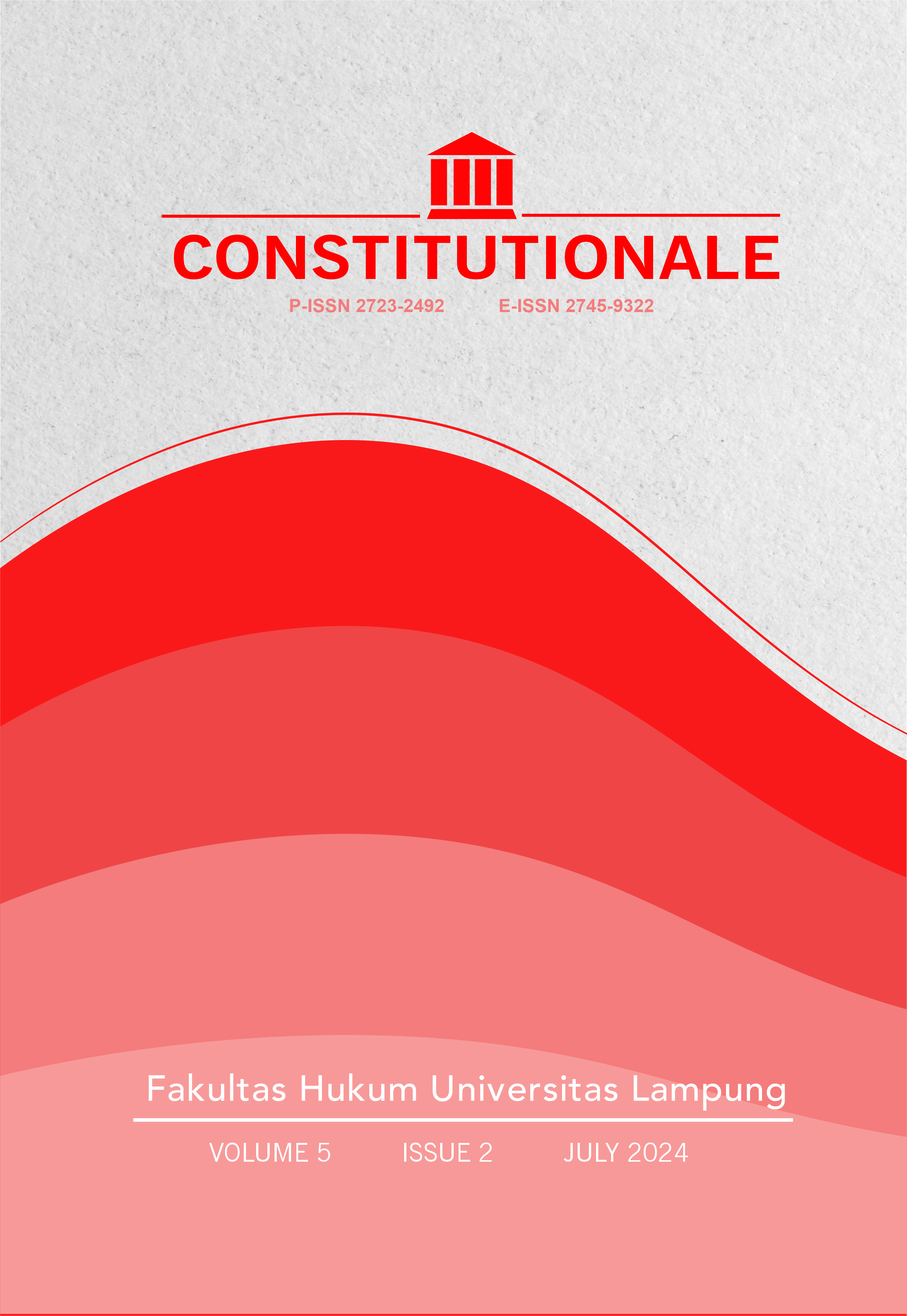Artikel (64)
This study aims to identify the implementation of bureaucratic reform and offer several solutions for improving licensing administration services. This research uses a qualitative approach with the type of instrumental case study research. The research was carried out at the North Lampung Regency Li...
Constitutionale; Vol. 3 No. 2 (2022); 119-130 | 2022
Empowering the Election Supervisory Agency: Enforcement of Law Number 7 of 2017 on General Elections
The implementation of elections in Indonesia is governed by Law No. 7 of 2017 on General Elections, which establishes regulations for simultaneous elections. This law grants quasi-judicial authority to the Election Supervisory Agency (Bawaslu) in addressing administrative and procedural violations o...
Constitutionale; Vol. 3 No. 2 (2022); 103-118 | 2022
This article describes the fundamental principles of the Indonesian economic system as envisioned by the nation's founding figures. Ekonomi Kerakyatan (Proletarian Economy) - a concept pioneered by Muhammad Hatta is a defining element of Indonesian democracy which emphasizes the community empowermen...
Constitutionale; Vol. 3 No. 2 (2022); 85-102 | 2022
Indonesia has a comprehensive vision for reform encompassed in the national time reform roadmap from 2010 to 2025. The overarching framework for Indonesian reform is delineated by Presidential Regulation No. 81 of 2010, while the roadmap for employee reform falls under the purview of the Ministerial...
Constitutionale; Vol. 3 No. 2 (2022); 74-84 | 2022
Privacy is a fundamental human right recognized in international human rights law. Indonesia acknowledges the importance of privacy protection. However, the current legal framework in Indonesia lacks comprehensive measures for protecting public data. On October 18, 2021, a data breach exposed sensit...
Constitutionale; Vol. 3 No. 1 (2022); 65-74 | 2022
The proper functioning of the Gulf Cooperation Council (GCC) single market necessitates the elimination of discriminatory value-added tax (VAT) laws on commodities. This study aims to empirically assess the imperative for harmonizing VAT legislation among GCC countries. Data for this investigation w...
Constitutionale; Vol. 3 No. 1 (2022); 51-64 | 2022
Issues in Indonesia's labor law stem from the influx of foreign workers and their impact on domestic employment. This recurring problem arises as foreign investment brings in experts or laborers from their home countries, often leading to conflicts with local workers. Indonesia's sizable population ...
Constitutionale; Vol. 3 No. 1 (2022); 39-50 | 2022
In the Working Committee Meeting of the Bill on Personal Data Protection, there was a proposal to establish an Independent Supervisory Authority in the protection of personal data. With the existence of an independent supervisory authority, it is hoped that it will create impartial and optimal indep...
Constitutionale; Vol. 3 No. 1 (2022); 19-38 | 2022
This paper explains the concept of bureaucracy and government as well as describing the differences between bureaucracy and government in terms of definition, theory, and task. This paper also discusses the position of the bureaucracy in the trias politica system, where there is a classification of ...
Constitutionale; Vol. 3 No. 1 (2022); 11-18 | 2022
The principles of Pancasila and the collective ethos of the Indonesian people should guide the freedom of association, assembly, and expression of opinion, serving as a conduit for achieving shared objectives within the framework of national unity. Despite existing restrictions, judicial oversight r...
Constitutionale; Vol. 3 No. 1 (2022); 1-10 | 2022


